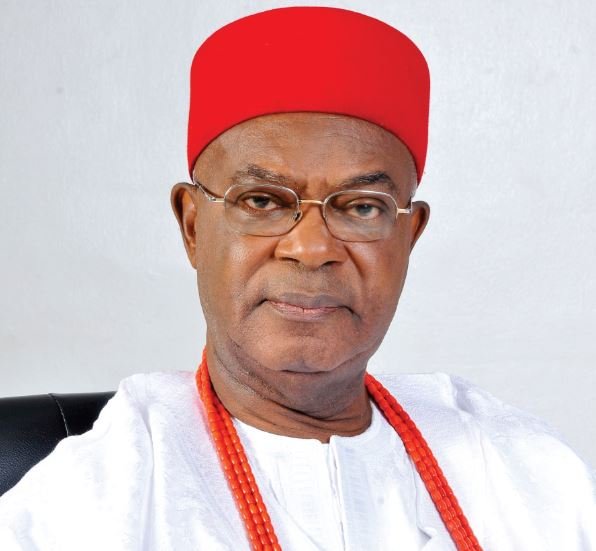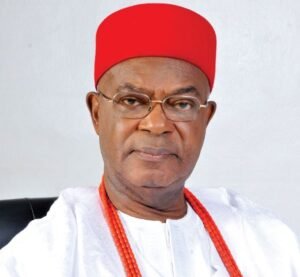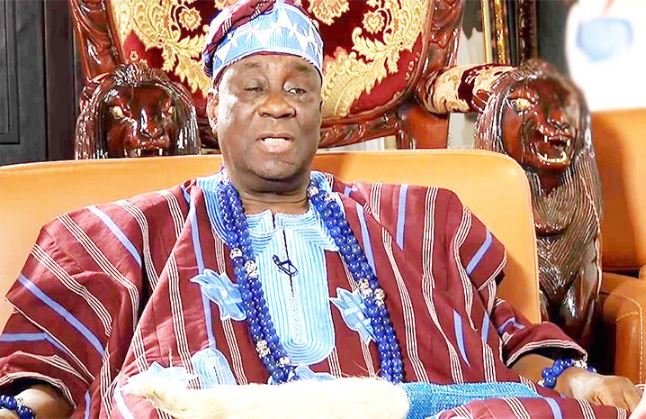
List Of Obis Of Onitsha (Mid 16th Century – Present)
The Obi of Onitsha is the traditional ruler of Onitsha, a city in Anambra State, Nigeria. This title has existed since the early 16th century when Onitsha was established as a trading center by adventurers from Benin.
The Obi serves as a leader and representative of the people, recognized by both state and federal governments. Historically, the Obi’s role has included negotiating with colonial powers and overseeing local governance.
READ ALSO: Is Obi Of Onitsha A Traditional Title?
List Of Obi Of Onitsha From Mid-16th Century Till Date
| Name | Reign Period |
|---|---|
| (Eze) Chima | Mid-16th century |
| Oreze | 16th–17th century |
| Chimaevi | 17th century |
| Chimukwu | 17th century |
| Chimaezi | 17th century |
| Nafia | 17th century |
| Tasia | 17th century |
| Eze Aroli | 17th–18th century |
| Chimedie | 18th century |
| Omozele | 18th century |
| Ezeolisa | 18th century |
| Ijelekpe | 18th–19th century |
| Udogwu | c. 1820 |
| Akazue | 1840–1873 |
| Diali | 1873–1874 |
| Anazonwu | 1874–1899 |
| Samuel Okosi | 1901–1931 |
| James Okosi | 1935–1961 |
| Joseph Okwudili Onyejekwe | 1962–1970 |
| Ofala Okechukwu Okagbue | 1970–2001 |
| Alfred Achebe | 2002–present |
READ ALSO: Is Obi Of Onitsha A Traditional Title?
How Is The Obi Of Onitsha Selected?
The process of selecting the Obi of Onitsha is rooted in tradition and culture. The new Obi must come from the royal family called Umuezechima. This family is made up of two main clans, Okebunabo and Umuezearoli.
Only men from this royal family are allowed to become the Obi, which ensures the throne stays within the right lineage. When the current Obi passes away, the process to find a new one begins.
This is managed by a special group of senior chiefs called the Umu Eze Chima, who act as the kingmakers. Their job is to pick a successor who is not only from the royal family but also has good character and is respected within the community.
The selection process often involves discussions and consultations with different families in the royal lineage to ensure that the decision is widely agreed upon.
If there are multiple candidates, each family may choose a representative, and these candidates could be evaluated through a ballot system.
The final decision is made during a general meeting where representatives from the royal families vote, and the candidate with the majority becomes the Obi-elect. After being selected, the Obi-elect must go through traditional ceremonies, including a major one called the “Isi Nni Ofo.”
This ritual gives the new Obi the authority to lead. Also, the Obi-elect needs to perform certain tasks and rituals to show that he is ready for the responsibilities of being a leader.
Who Is The First Obi Of Onitsha?
Eze Chima, also known as Ezechima, is believed to be the first Obi (king) of Onitsha. He was originally from Benin, but after a disagreement over who would become king in his homeland, Chima left with a large group of followers in the early 16th century.
They traveled together until they reached the Niger River. At the Niger River, Chima’s group split into two. Some of his followers went south to a place called Aboh, while the rest, led by Chima’s eldest son, Oreze, crossed the river and settled in what we now call Onitsha Inland Town.Oreze became the first king of this new community.Sadly, Eze Chima passed away before reaching Onitsha.
However, his legacy lived on through his son Oreze, and the people who followed him. Chima and his descendants took on the title “Eze,” meaning king, which later became the official title for the traditional ruler of Onitsha.
READ ALSO: Top 10 Cleanest States In Nigeria
Who Is The Current Obi Of Onitsha?

The current Obi of Onitsha is Nnaemeka Alfred Ugochukwu Achebe, commonly known as Igwe Nnaemeka Achebe. Born on May 14, 1941, in Onitsha, he comes from a royal family, as the son of Akunne Anthony Chinwuba Achebe and Chukwuebuka Winifred Ogbenyeanu Achebe.
Nnaemeka Achebe began his education at St. John’s Primary School in Onitsha and then attended Government Secondary School in Owerri.
He was a bright student and earned a scholarship to Stanford University in California, where he obtained a Bachelor of Science degree in Chemistry in 1966.
Also, he earned a Master’s degree in Business Administration from Columbia University in New York. In 1979, he attended a special executive course at the National Institute for Policy and Strategic Studies in Kuru.
However, before he became the Obi, Achebe had a successful career at Shell Petroleum Development Company, where he worked for over 30 years. He retired in 1995 but continued to advise Shell International until he was crowned Obi in 2002.
Achebe has concentrated on improving education and culture in his community, having set up a trust fund to help children get an education, no matter their financial situation.
He has also represented Nigeria on many international platforms. In addition to being Obi, he has held important positions like Chancellor of Ahmadu Bello University since 2015 and was previously Chancellor of Kogi State University.
Nnaemeka Achebe is married to Igwe Nwanyi Chinwe Ngozi Ononye, and together they have six children. His contributions to education and culture have earned him many awards, including the title of Commander of the Order of the Federal Republic (CFR) in 2004.


